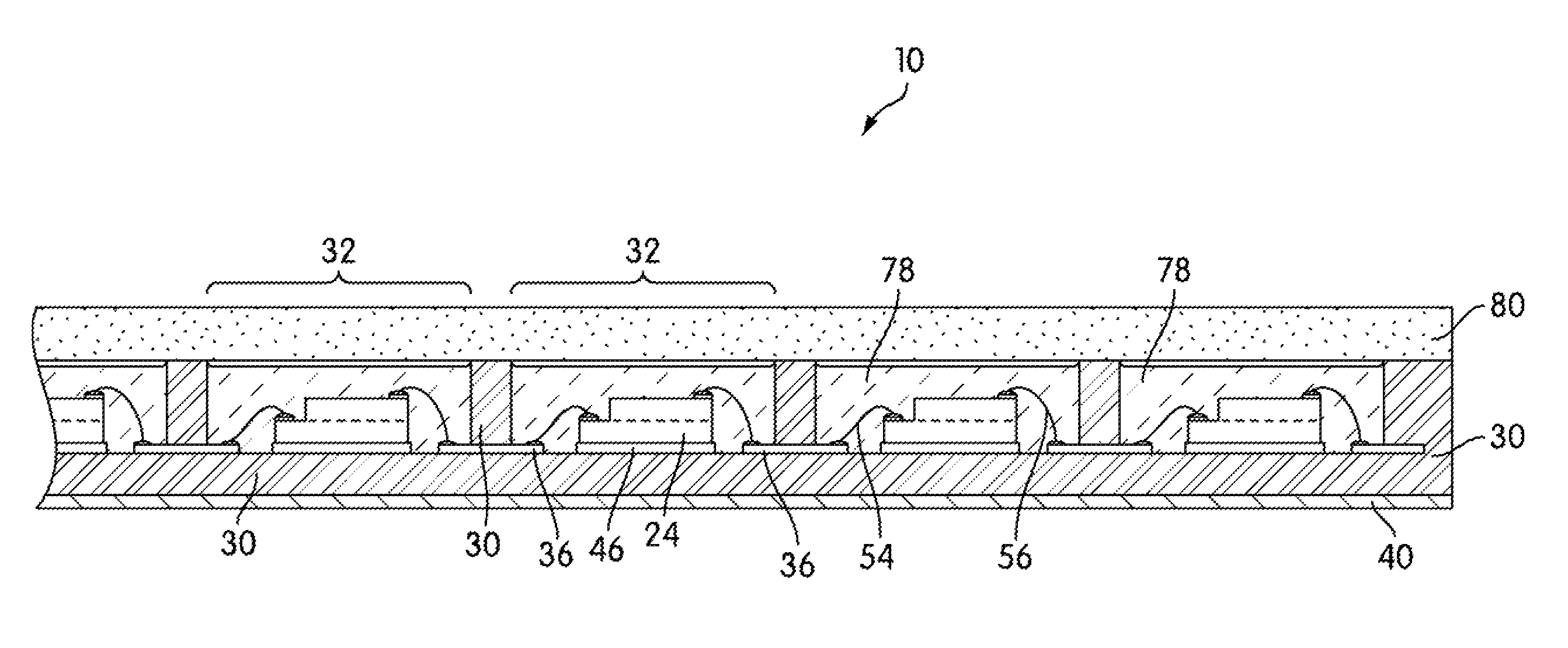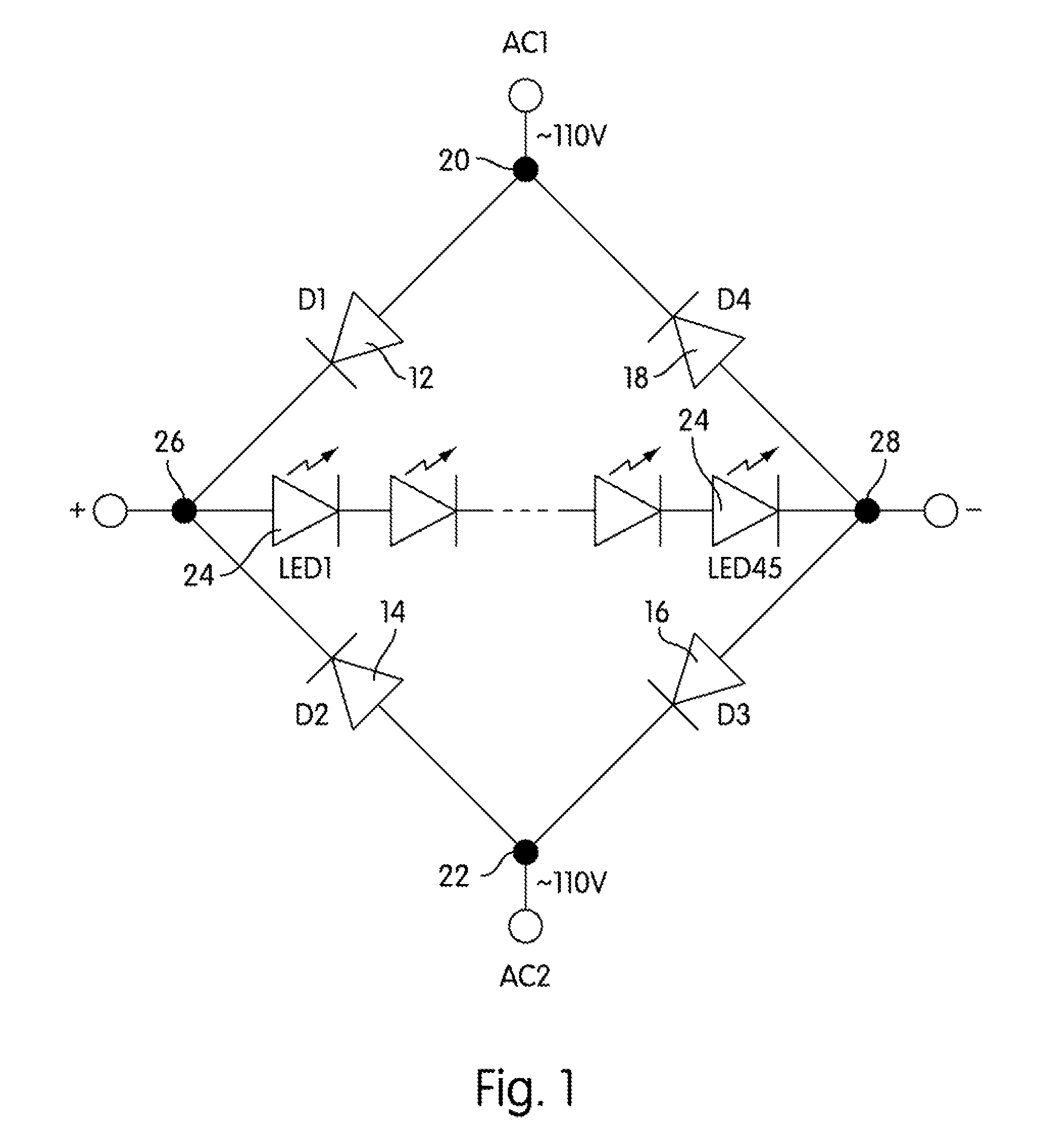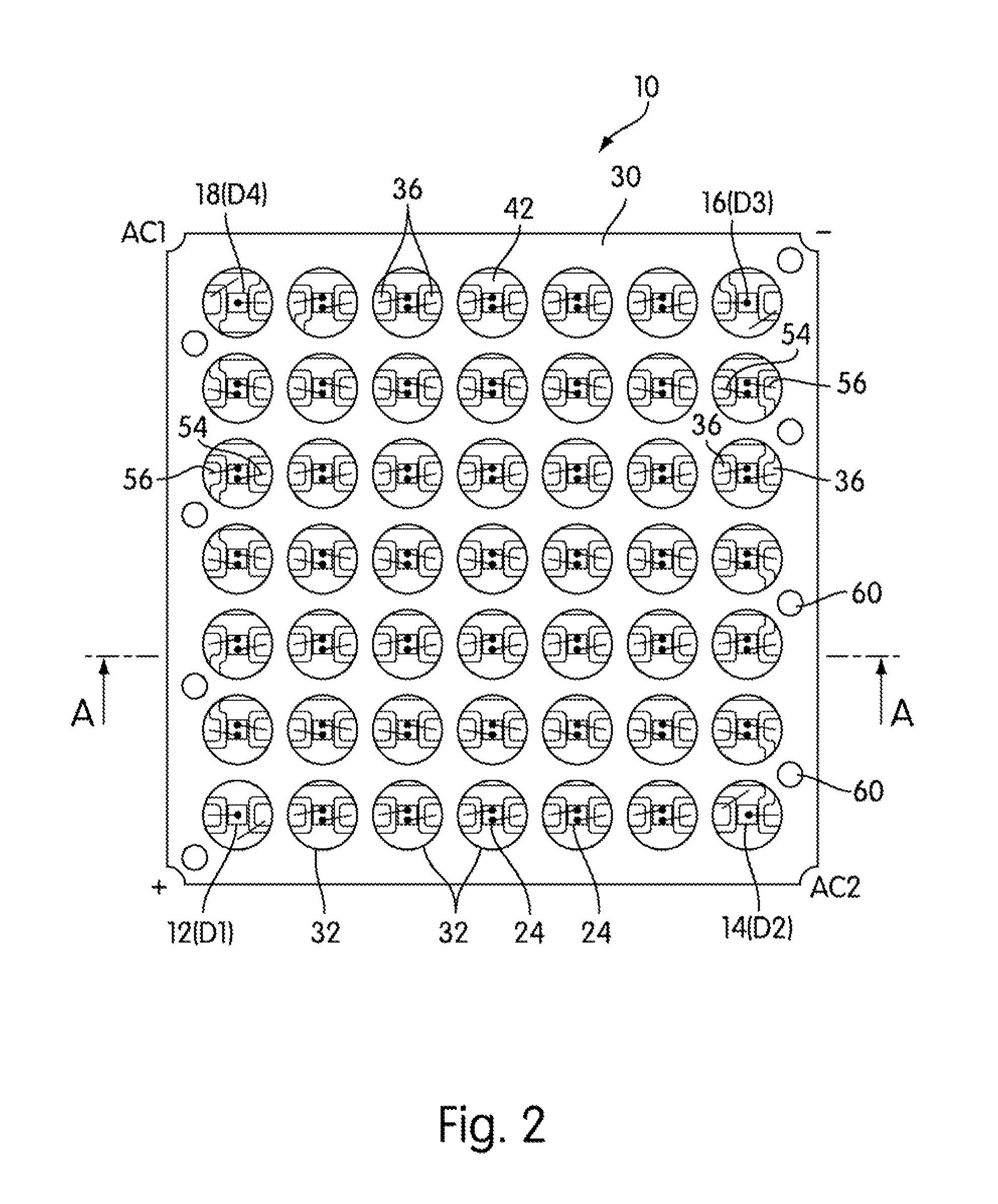Light emitting device
a technology of light-emitting devices and light-emitting devices, which is applied in the direction of semiconductor devices for light sources, point-like light sources, lighting and heating apparatus, etc., can solve the problems of high production cost, only having a 50% payload, and general inconvenient arrangemen
- Summary
- Abstract
- Description
- Claims
- Application Information
AI Technical Summary
Benefits of technology
Problems solved by technology
Method used
Image
Examples
Embodiment Construction
[0035]A white light emitting AC light emitting device 10 in accordance with a first embodiment of the invention will now be described with reference to FIGS. 1 to 5 of the accompanying drawings. The AC light emitting device 10 is configured for direct operation from a 110V (r.m.s.) AC (60 Hz) mains power supply as is found in North America.
[0036]FIG. 1 is a circuit diagram of the AC light emitting device 10 of the invention and comprises four rectifier diodes 12, 14, 16, 18 (D1 to D4) connected in series in a closed loop bridge configuration. The rectifier diodes (D1 to D4) can comprise silicon, germanium, silicon carbide, or gallium nitride devices. A mains 110V AC power source is connectable to opposite nodes 20 and 22 (AC1 and AC2) of the bridge and forty five series-connected gallium nitride-based blue or UV emitting LED chips 24 (LED1 to LED45) connected between the rectified positive 26 (+) and negative 28 (−) nodes of the diode bridge. For 110V operation each LED chip 24 drop...
PUM
 Login to View More
Login to View More Abstract
Description
Claims
Application Information
 Login to View More
Login to View More - R&D
- Intellectual Property
- Life Sciences
- Materials
- Tech Scout
- Unparalleled Data Quality
- Higher Quality Content
- 60% Fewer Hallucinations
Browse by: Latest US Patents, China's latest patents, Technical Efficacy Thesaurus, Application Domain, Technology Topic, Popular Technical Reports.
© 2025 PatSnap. All rights reserved.Legal|Privacy policy|Modern Slavery Act Transparency Statement|Sitemap|About US| Contact US: help@patsnap.com



